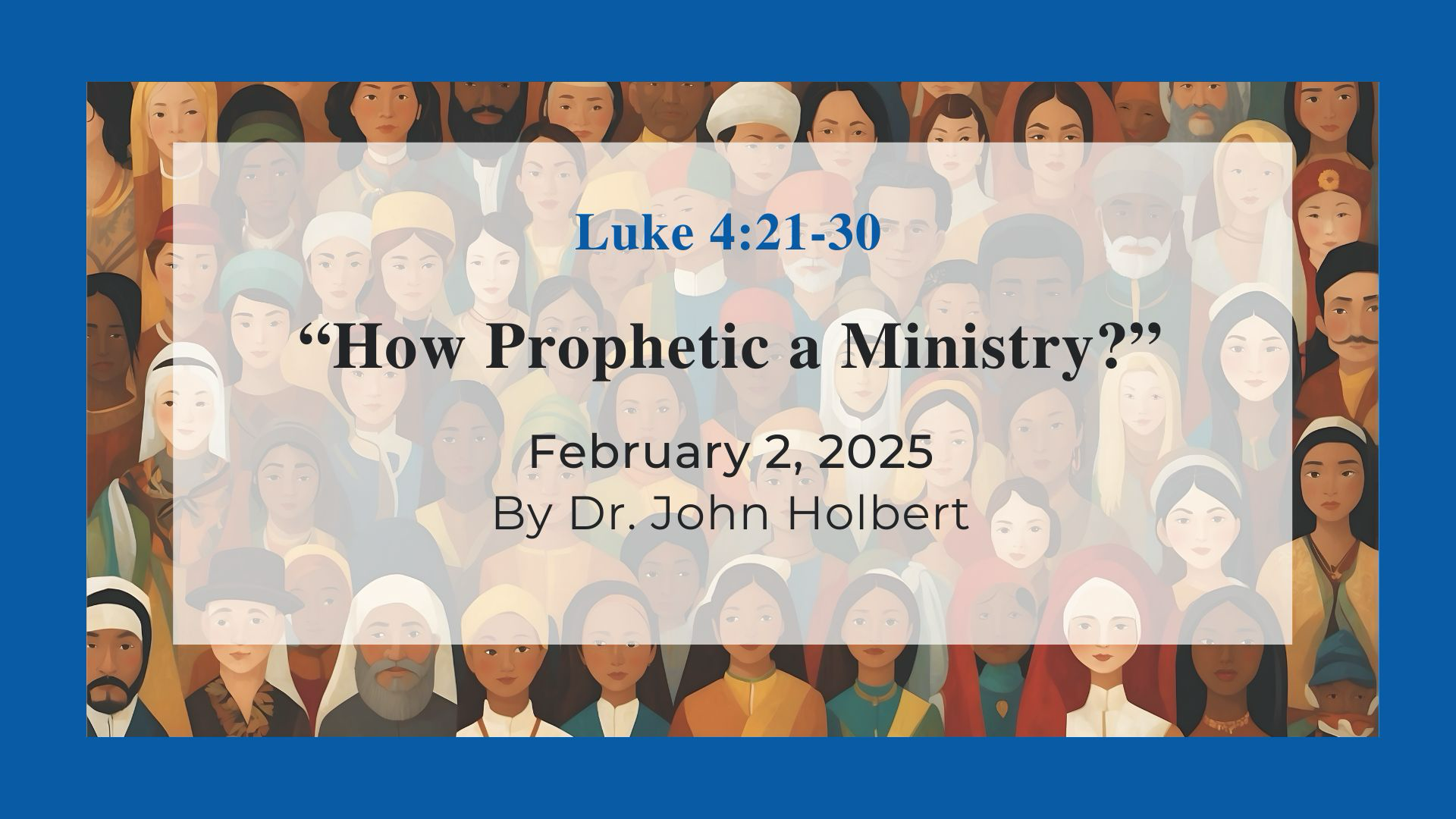How Prophetic a Ministry? Reflections on Luke 4:21-30, Ephiphany 4, Year C
by John C. Holbert on Saturday, December 28, 2024

In last week’s reflections on this passage, which the lectionary collectors limited to vss.14-21, I continued the story to include the material for today, vss.21-30. I did not think then, nor do I think now, that one can easily divide this portion of the tale from the beginning of the inaugural sermon of Jesus in his hometown of Nazareth. I focused my attention last week on the clear message of universality that lies in the sermon. The rage that overcame the listeners was engendered by Jesus, alluding to two passages from the Hebrew Bible that he found to be indicative of the ministry on which he was about to embark. He was sent, he implied, to both Jew and Gentile, just as his prophetic forebears, Elijah and Elisha, were sent. The local Jewish folk of Nazareth were not ready to hear such an inclusive message, and they literally threatened Jesus’s life as a result.
But there lies in these verses at least one more concern that Luke wishes to raise. As often in the gospels, the movements of the dialogues appear to be not as smooth or easily followed as a reader might expect. This section is a prime example. After Jesus has read his chosen passage from three texts from Isaiah, primarily from Is.61, he sits down, and announces “Today this scripture that you have heard is being brought to fulfillment” (Luke 4:21). It is an odd way to conclude a reading. Precisely what does he mean? The promise of the Isaiah texts consists primarily of prophetic acts on behalf of the marginalized of the society: the poor, the blind, the oppressed, the imprisoned. It encompasses a list very like those discovered in nearly all of the prophets of the Hebrew Bible. Little surprise then that the words evoke in the congregation “amazement at his graceful words” (4:22). They have heard this sermon before, no doubt; all should be concerned for those who have special needs in the community. Exactly how the texts are being fulfilled today is less clear.
Jesus then shifts subject completely. He refers to a noted proverb, “Physician, heal yourself,” and then imagines that they will expect him to do the great deeds of healing that he has done in Capernaum. (In reality, Luke misspeaks here; Jesus has not yet been to Capernaum, but will go very soon after leaving Nazareth, where he will indeed do deeds of healing: a man with an unclean spirit, ridding Peter’s mother-in-law of fever, and in a huge act of healing will treat “any who were sick…and cured them” (4:31-40). Jesus will be known as a healer, a man with special gifts, and he says to the synagogue community in Nazareth that they will demand the same from him.
But then he shifts subjects again! After telling them that he is well aware that “no prophet is acceptable in his own country,” he proceeds to remind them of the universal nature of the prophetic work of Elijah and Elisha, implying that they may expect the same from him. Prophetic work with the poor and outcast are affirmed by the crowd, and Jesus anticipates that they will also admire and applaud his healing ministry, but when he turns to the universal nature of that work, they turn ugly and will not have it!
Is there not a lesson for us modern preachers here? Our people welcome talk of helping the poor; it seems exactly what church ministry should be about, though the work is never complete, since the poor are with us always. And healing ministry is also more than welcome. Stephen’s Ministers and the like may be found in many churches, because there is always need for those who center their attention on healing the sick and broken-hearted. But the appetite for universal prophetic mission work is perhaps not quite as acceptable. After all, it is OUR God we worship, not THEIRS. There are vast numbers of people who are not like us: they do not dress or talk, or eat, or act as we do, and their God seems so distant from the one we claim to know. The rage of the synagogue congregation that day in Nazareth was the result of moving away from acceptable acts of ministry to controversial acts with others, with non-Christians, with LGBTQI+ folk, with those unlike us.
Jesus was not rejected for his healing work, or for his concern for the marginalized. His rejection came from those who could not stand his choices of eating partners, his willingness to extend his ministry to those who were not Jewish. How about us? How far are we willing to go to extend our work beyond neighbors and friends to those we name enemies? Perhaps there is where the rage really begins.
